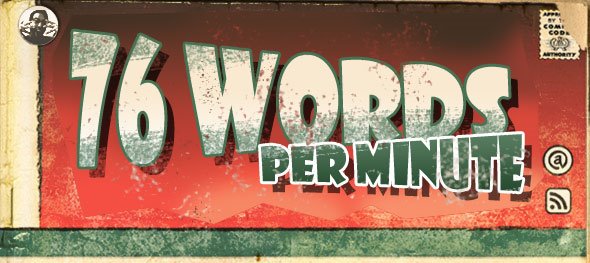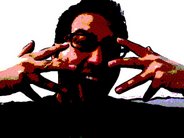There's a tremendous backlog of posts regarding all sorts of things that I've been neglecting covering the last couple of months or so. Even so, I highly doubt there will be any recovery of any sort since my memory of certain events is worse for the wear. Suffice it to say, I can try and dredge it up, but I can't promise wondrousness.
About a month and a half ago, my mom had asked me if we wanted to see yet another play written and performed by the Latin art collective, Culture Clash. If you remember, we had previously seen them in "Water and Power," a parable about the differing sides of Chicano sociology. This new play, first performed up north in Berkeley, was titled "Zorro in Hell." Right off the bat, I will say that it was a much different beast than our first experience of their at-large theater performance.
Summarizing "Zorro in Hell" isn't easy. In the tradition of many early Chicano plays, it tends towards activist and mystic themes. When one of the main characters is a talking therapist grizzly, you are in for an interesting tale. Instantly, we could tell that it was much less linear than what we'd seen before. Unfortunately, this led to a disjointed narrative that, while entertaining, was not as effective as "Water and Power."
What I did like is that the humor was still present through every act. The biting social commentary spread itself across the differing interpretations of the legend of Zorro. From his conception by a white man as a pulp hero in the vein of the Scarlet Pimpernel to his glossy big-screen depiction by a Spaniard, Culture Clash tells a compelling story of disingenuous co-opting of Chicano identity via commercialization. Our main character's mission was to peek through the veil and re-discover his lost Chicano identity by becoming a sort of "Zorro" himself. This is where the play sort of lost direction.
The invectives themselves are admirable, it's the delivery of each one that tends to wear on you. Often, a play is known for the snappiness of its dialogue, but "Zorro" tended towards overblown and overlong in a few monologues. The spirit remains intact, but I did find myself exhausted by listening. This coupled with the over-the-top narrative caused some confusion, but not enough for us to hate it. We didn't dislike it, actually, but found it to be much harder to follow than it should have been.
Even so, I enjoyed it quite a bit. We did discuss it more over dinner and concluded that it wasn't quite the play that "Water and Power" was. Still, Culture Clash does remain one of the few higher profile Chicano presences in the theater and I will support them however I can.
Subscribe to:
Post Comments (Atom)


No comments:
Post a Comment